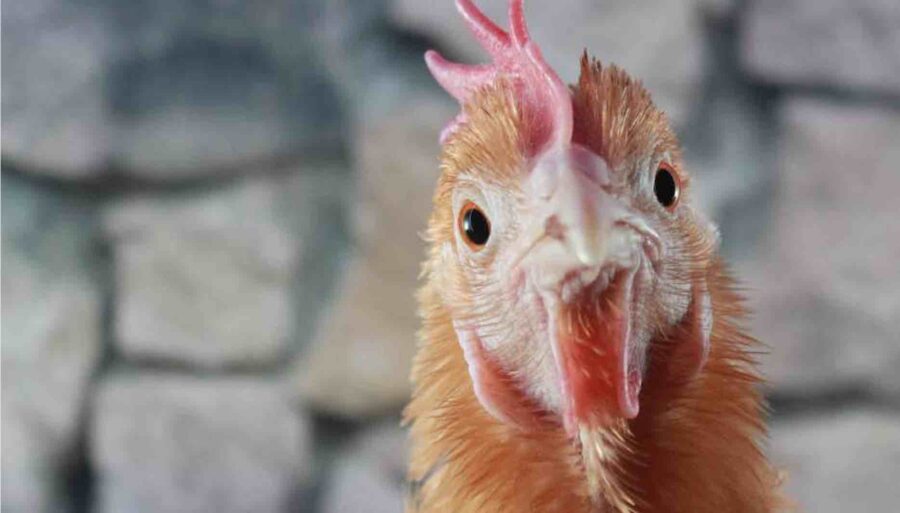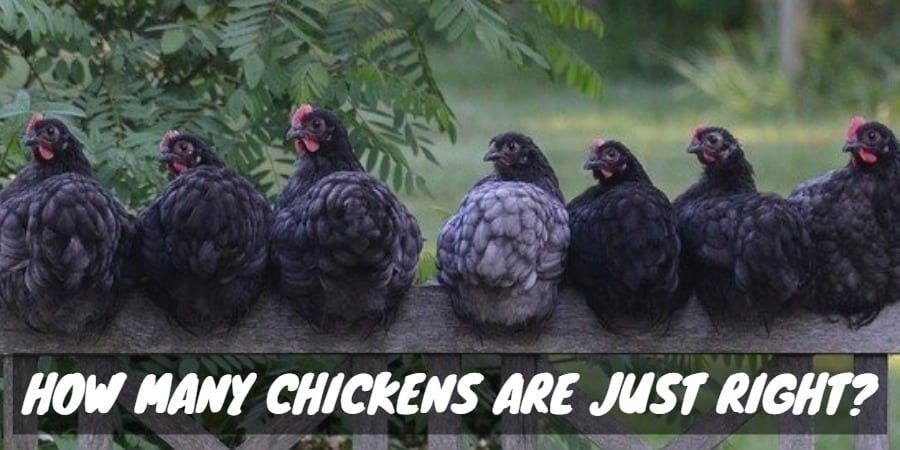No. Chickens can’t see in the dark. As evening fades, so does your chickens ability to see something. They are virtually blind in the dark night.
In this article, we’re going to check what and how a chicken can see. Then let’s see what are the consequences of this incapacity to see in the dark.
Chicken Behaviour According To Daylight

If you have chickens you’ve probably noticed that they have extremely acute eyesight. They may seem aloof but, in reality, they are carefully eyeing that gnat as it flies aimlessly around. They will catch a glimpse of you as you cross through your home, only scarcely making an appearance in the window, and come running across the yard because you are their source of food.
And yet, despite their keen sense of awareness during the day, you’ve come to realize that sunset brings on an entirely NEW behaviour in your hens.
All of a sudden you find yourself wondering … can my chicken even SEE in the dark? And, what is it that they DO see?
What Is Chicken Vision?
Because we live in the age that we do, there are actual studies that look at the make-up and the functioning of the eye of a chicken. How do they operate? How do they compare to that of a human?
- Chickens have three eyelids and each can move independently.
- Chickens eyes account for approximately 10% of the volume of their heads.
- Chickens have 300 degree eyesight.
- Chickens can see colours and hues in a greater degree of accuracy and vibrancy than humans.
- Chicken and human eyes have remarkable similarities in structure including the development and functioning of their cornea and iris.
- Chickens have a pineal gland that is responsible for their ability to sense changes in light (and thus impact their ability to physically see in the dark).
- Chickens are tetrachromatic. This means that they have four cones in their eye that recognize colours, red, blue, green and ultraviolet light. This is what gives them their ability to quickly recognize shiny bugs and see a wider spectrum of colours than humans.
Now that you have some new party trivia about chicken eyes, let’s dive in.
Consequences of Lack of Night Vision
Again, chickens can not see in the dark.
This is why, if you’ve had your hen locked out of their coop for any reason, they will bunker down wherever they lie and wait for morning before returning to their routine as usual.
This is also the reason chickens, and many homestead foul, are excellent at putting themselves to bed.
Because of their pineal gland, chickens have a remarkable ability to sense even a slight change in lighting, as it darkens they will head home (this is often true of even severe weather). The change in light is a signal to them that they are about to go blind, and thus their cue that it’s time for bed.
What Can I Do To Help My Chickens In The Dark
Knowing that your flock is virtually blind in the dark may be worrisome as a backyard chicken tender. Here are some ways to help your hens make it back to bed safely each night:
1. Create a Routine
Chickens are creatures of habit (aren’t we all). Before free-ranging your flock, make sure they know where to hang their hat. Keeping your hens in an enclosed coop for 3-4 days before allowing them to free-range will help them to identify “home”.
2. Clear Obstacles
Because your hens will be heading home as the sun is setting you are going to want to make sure that their path is mostly clear. Chickens, being creatures of habit, set their gauges for retuning home at the last possible moment (especially when there is new food out), this may land them in trouble should the sun be setting and their usual route to the coop is interrupted.
Make sure that the path is clear, within reason, so that the hens can make it home safe and sound.
This is especially important after a storm. If you have a standard door as your coop opening it may blow shut, leaving your flock stranded in the dark and, trust me, there is nothing more frustrating than looking for a lost bird in the dark.
3. Install Lighting
If you’re worried about your hens making it home in the dark you can always consider leaving the lights on in the coop.
This has both bonuses and a penalty.
Good news first : the hens know where to go as the day goes on. Second, artificial lighting has been linked to increased egg production in hens.
Here is an example of such lighting on Amazon.
But, this also means breaking the natural day cycle of our hens, therefore it will reduce their life expectancy.
4. Prevent Predator from Hunting
It’s bound to happen once in a while, you go to close up the coop and you notice a hen is not there.
If you’re relatively sure that you haven’t lost a hen to a predator (check out our predator discussions here) it may be time to bust out the flashlight and go on the hunt.
Or better, prevent predators from hunting. We have above how to help them to go back to their coop, so make sure the coop is completely closed at night.
Conclusion
Chicken cannot see in the dark. So, while your hens may be a sitting duck in the dark, they still have pretty amazing eyesight (in the light) and with tasty eggs, which price increased by 60% this year in the United States, they are certainly worth the extra effort to keep them safe at night.




